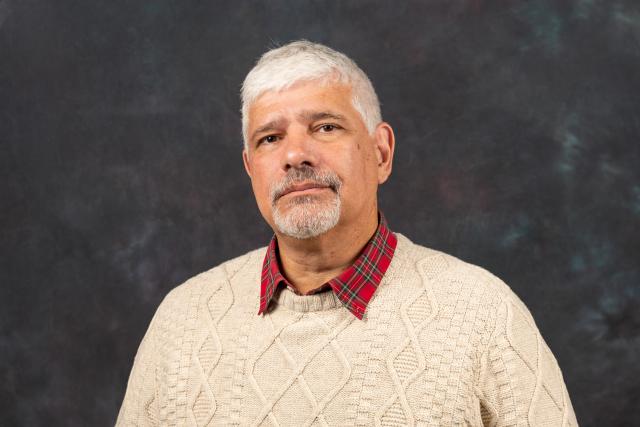Q&A: Frank Argote-Freyre on Making a Difference on Immigration

Frank Argote-Freyre, Ph.D., a Kean associate professor of Latin American history, is a former Congressional press secretary, an expert on U.S.-Cuba relations and was a member of the Electoral College during the 2012 presidential election. He also chairs the Latino Action Network Foundation in New Jersey and advocates for immigrant rights and social justice. He spoke to Kean News about his perspective on the immigration crisis.
Q. Has anything changed in recent years – for the worse or for the better – in the relationship between the U.S. and Latin America?
Latin America is broken into different regions. The U.S. relationship with Central American countries and Mexico has always been a disaster. Things are not improving, and they’re certainly not improving in Cuba.
In South America we’ve ignored many of our trade relationships, and countries are turning to doing business with China instead. Chile and Brazil are trading more with Asia, China and Japan than with the U.S. We’ve ignored South American countries because of our emphasis on the war on terror.
Q. Why has the issue of immigrants crossing the border from Latin American become such a huge issue in the U.S.
This has been a big issue for the last 20 to 30 years, arguably even longer. It has been politicized now to the greatest degree. The concept of the wall, which historically doesn’t work, turned it into an “us-versus-them” situation, which is very dangerous. Until Congress comes up with a comprehensive immigration plan, this issue will continue.
Q. What can be done to help the situation?
A couple of things would make a tremendous difference, but each side of the political spectrum uses the problem as a political weapon against the other.
There are 10 to 11 million undocumented immigrants here. Many came in 1990s-2000s as a result of the NAFTA trade agreement. We should legalize them. There’s no point to have 10 to 11 million people living under the radar. They came because U.S. corporations undermined the agricultural component of their economy by going in and undercutting corn prices, which drove out a lot of small Mexican farmers. If you look at New Jersey, Mexicans were one of the fastest growing populations here from 1990 to 2010.
We need to create a worker program, where folks come in, get a visa, then leave. After 9/11, a lot of those programs were discontinued. Some could be migrant farmworkers, others work in sectors like restaurants, the poultry industry. There are clear labor shortages in the U.S. A regularized program would be a good thing.
Finally, a Marshall-type program would provide economic investment in these countries. If we provide funds in a serious way — actually give money for economic development — people are less likely to come here. They’re not going to want to come here.
Q. How do you feel about new restrictions on immigration to the U.S. that have been proposed, for example, requiring asylum seekers to wait in Mexico or asking them to show they won't be "public charges."
According to the Pew Research Center, most data indicates border crossings are actually down. Most people here without documents fly in and overstay visas. This has become a political weapon. In the past, immigrants, generally speaking, have had to provide proof they’ll have a sponsor here. It seems awfully cruel if a person has family they can stay with in the U.S., and while they’re seeking asylum, you force them to live in refugee camps in Mexico. Their goal is not to stay in Mexico.
Q. What is the most important point you want to convey as a scholar of Latin American history?
I always tell my students, there’s a long history of immigration in the U.S., and an equally long history of immigrant bashing. Immigrants have always been scapegoated in the U.S. They’re easy to pick on. They don’t have political power, they’re seen as outsiders, they have accents. It plays to our worst, basest instincts. Yet history should have taught us that most of these immigrants will end up being part of the fabric of the U.S.; they’ll create economic opportunities; they’ll make this a better country overall.